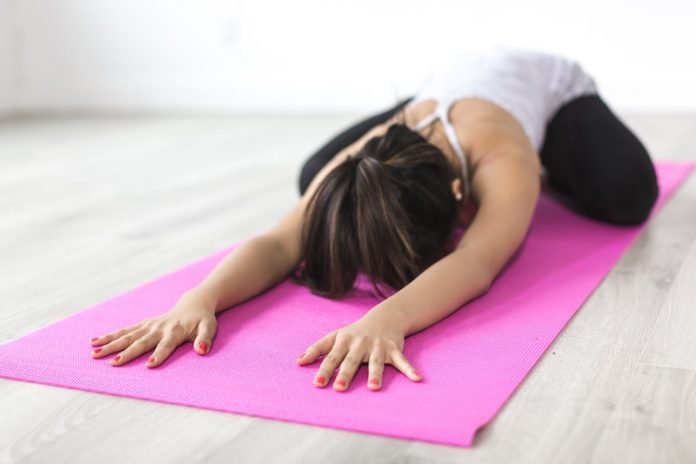
In a new study, researchers found chair yoga more effective than music therapy in older adults with dementia.
The research was conducted by a team from Florida Atlantic University.
As dementia progresses, the ability to participate in exercise programs declines.
Sticking to a program also becomes challenging because of impaired cognition, mobility issues or risk of falls and fractures—some exercise regimens are just too complicated or physically demanding.
Previous studies have shown the benefits of physical activity on dementia.
But few have included participants with moderate-to-severe dementia or examined the effects of gentle types of exercise on this population.
In the study, the team examined the effects of chair yoga on older adults with moderate to severe dementia who are unable to participate in regular exercise or standing yoga due to cognitive impairment, problems with balance, or fear of falling.
They aimed to assess the likelihood of these individuals’ ability to participate in non-pharmacological interventions as well as demonstrate the safety and effects of chair yoga on older adults with all levels of dementia.
Study participants were 60 years or older (mean average age was 84 years old) and diagnosed with dementia including Alzheimer’s disease (the largest diagnostic group), Lewy Body dementia and Parkinson’s disease dementia.
The researchers compared chair yoga with two other types of non-pharmacological interventions: chair-based exercise and music intervention.
Participants in each of the three groups attended 45-minute sessions twice a week for 12 weeks.
Results showed that people with moderate-to-severe dementia could safely adhere to non-pharmacological interventions.
More than 97% of the participants fully engaged in each session.
Study findings showed that the chair yoga group improved significantly in quality of life compared to the music intervention group.
Both the chair yoga and chair-exercise groups showed improvement over time, while the music intervention group declined.
In addition, both the chair yoga and chair-based exercise groups showed lower depression across all three-time points when compared to the music intervention group.
The researchers also examined the effects of chair yoga on physical function, including balance and mobility, and compared the effects of chair-based exercise and music intervention.
They also looked at the effects of chair yoga on reducing psychological symptoms like anxiety and depression, behavioral symptoms like agitation or aggression, and improved quality of life.
They also explored the effects of chair yoga on sleep problems.
They found chair yoga provides a safe environment for stretching, strengthening, and flexibility while decreasing the risk of falls by using a chair.
It also provides important breathing and relaxation techniques utilizing stationary poses that use isometric contraction and guided relaxation of various muscle groups.
The team says the physical poses they used in the chair yoga and chair-based exercise groups were an important factor in improving the quality of life for the people with dementia.
The lead author of the study is Juyoung Park, Ph.D.
The study is published in American Journal of Alzheimer’s Disease & Other Dementias.
Copyright © 2019 Knowridge Science Report. All rights reserved.



